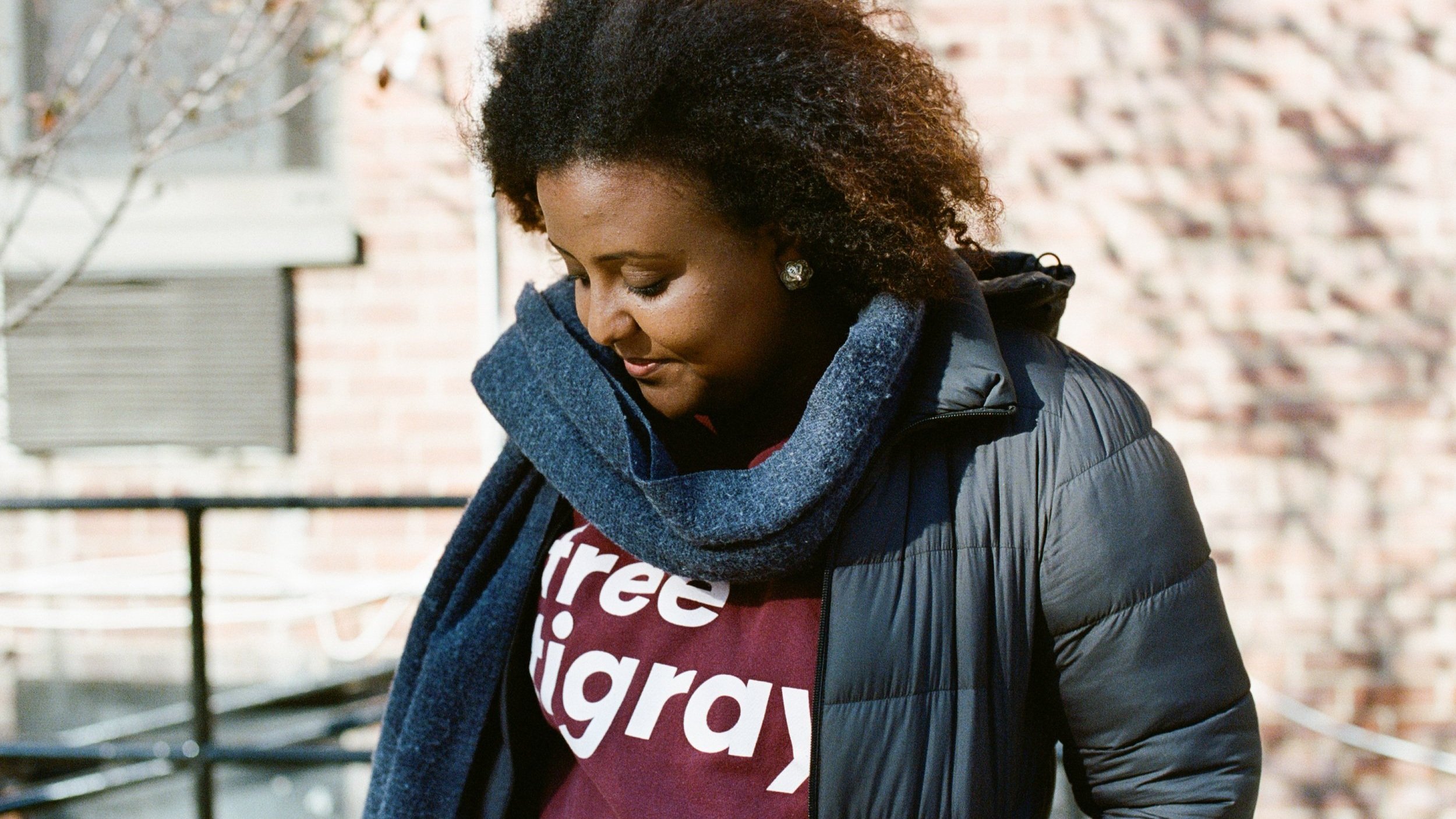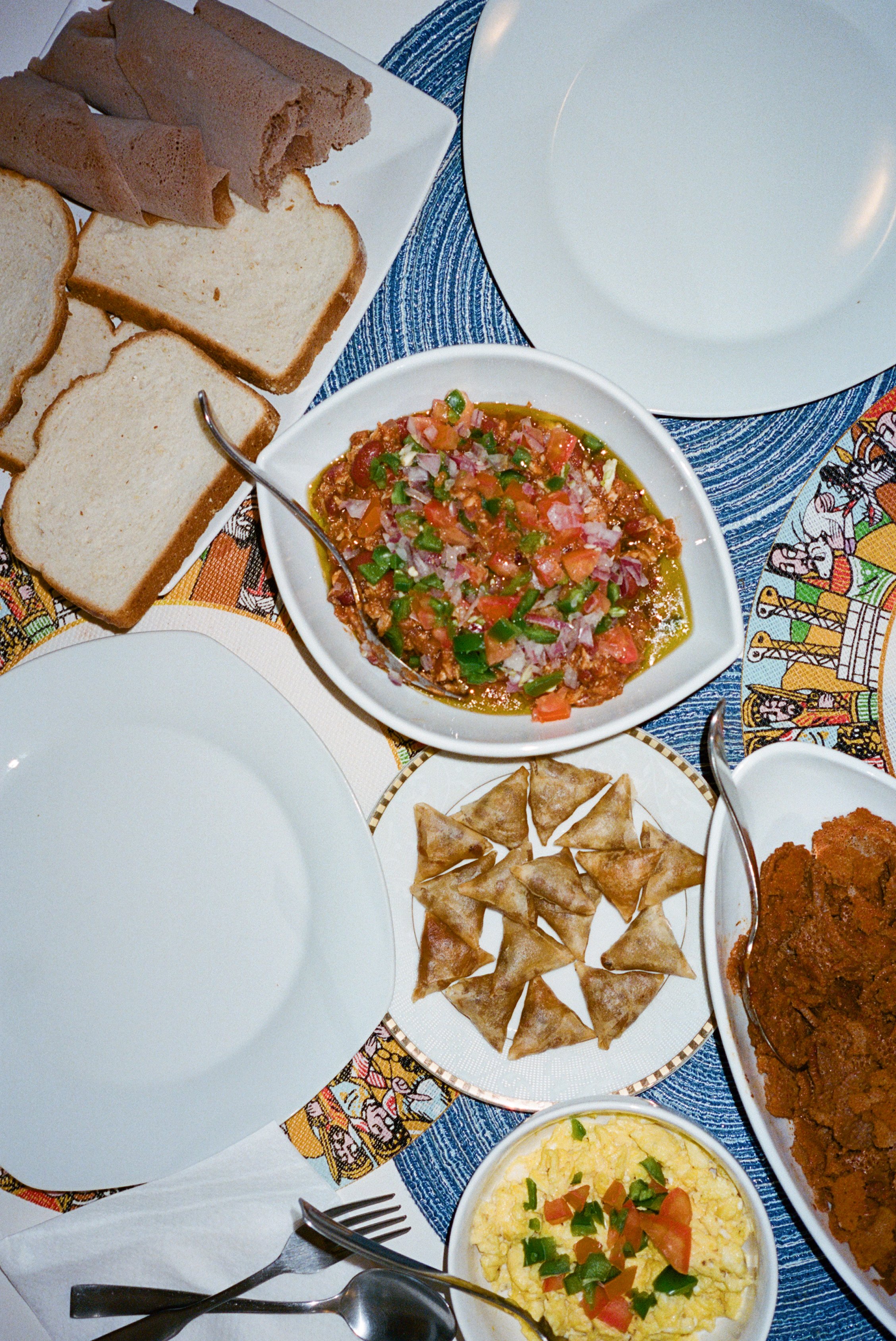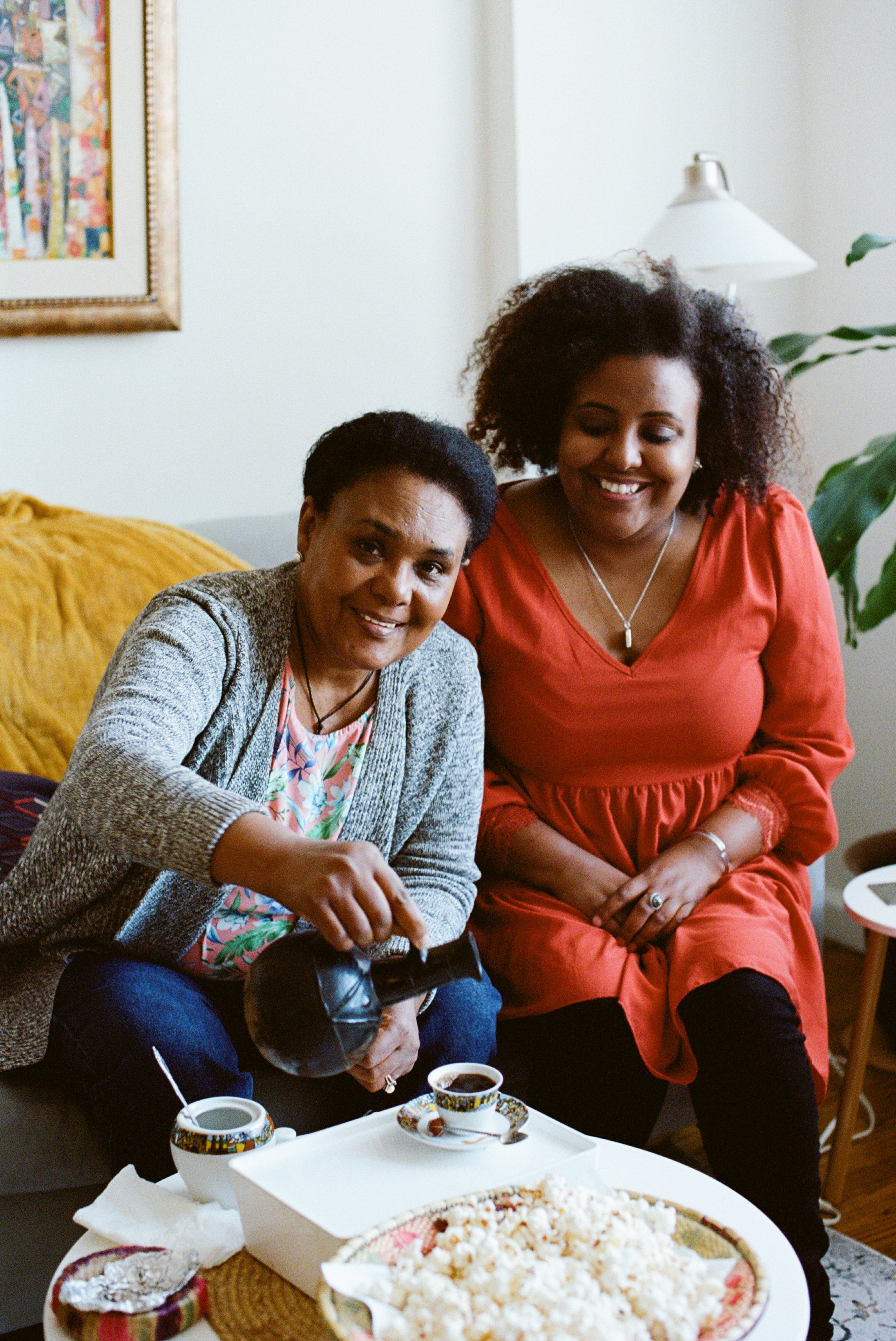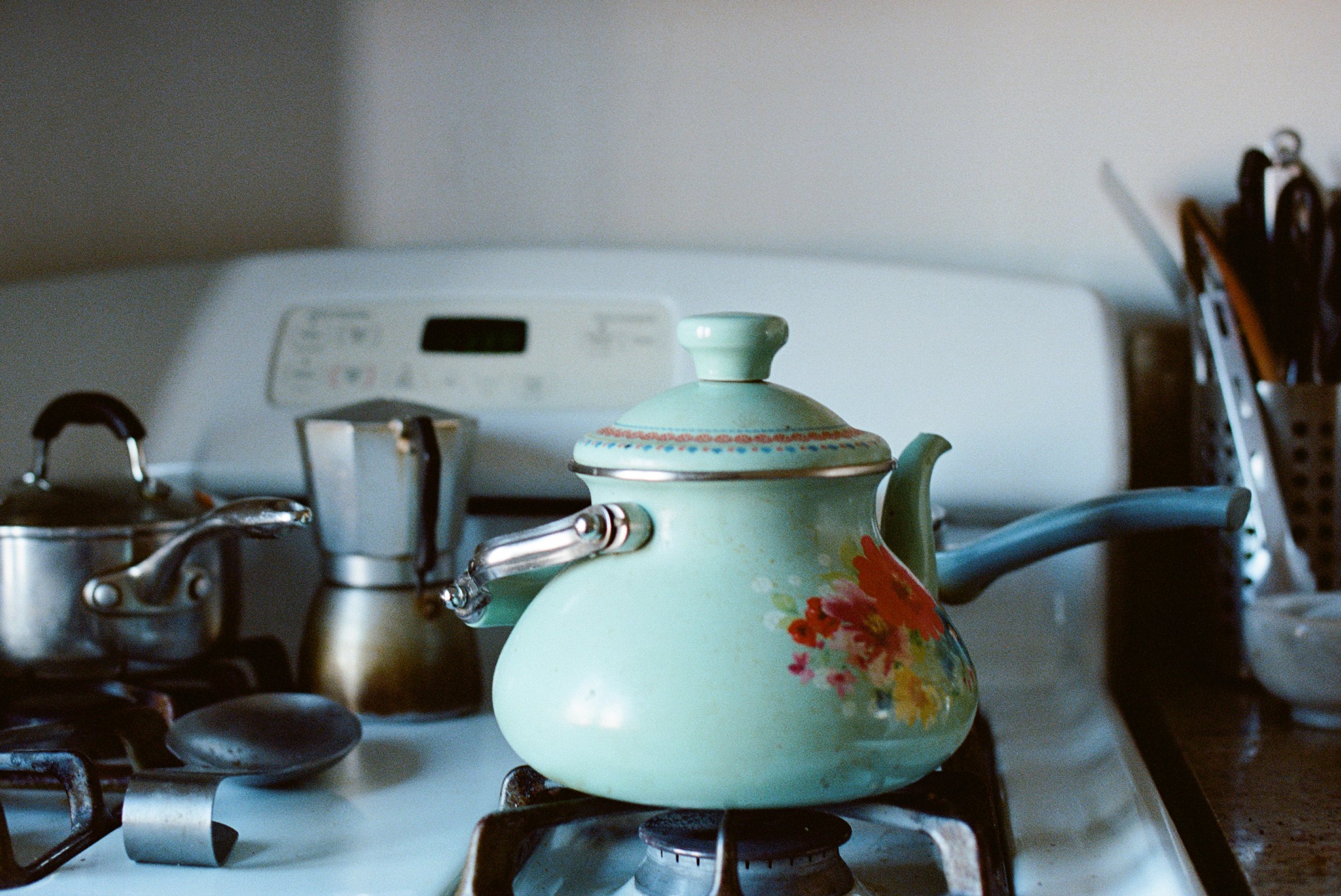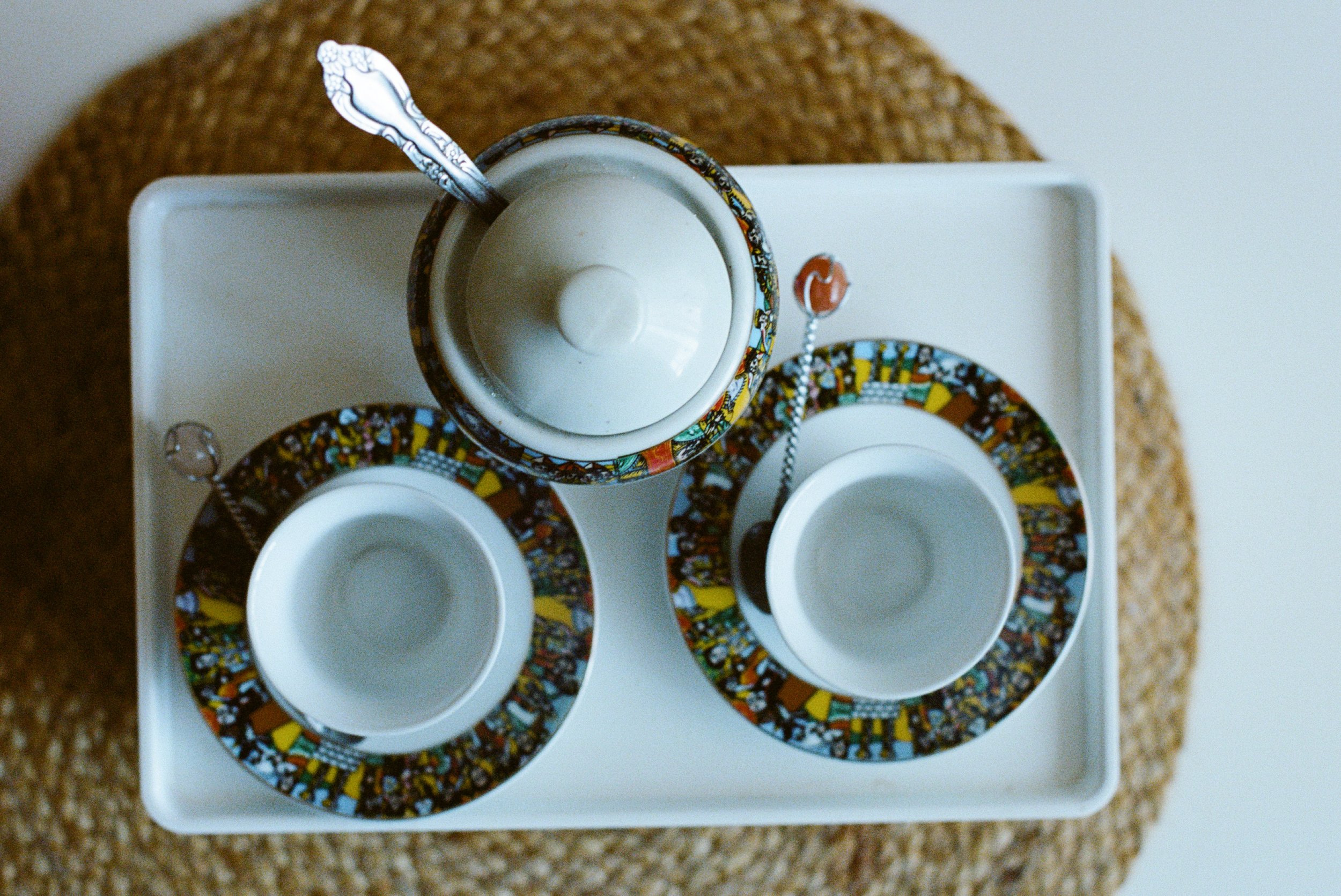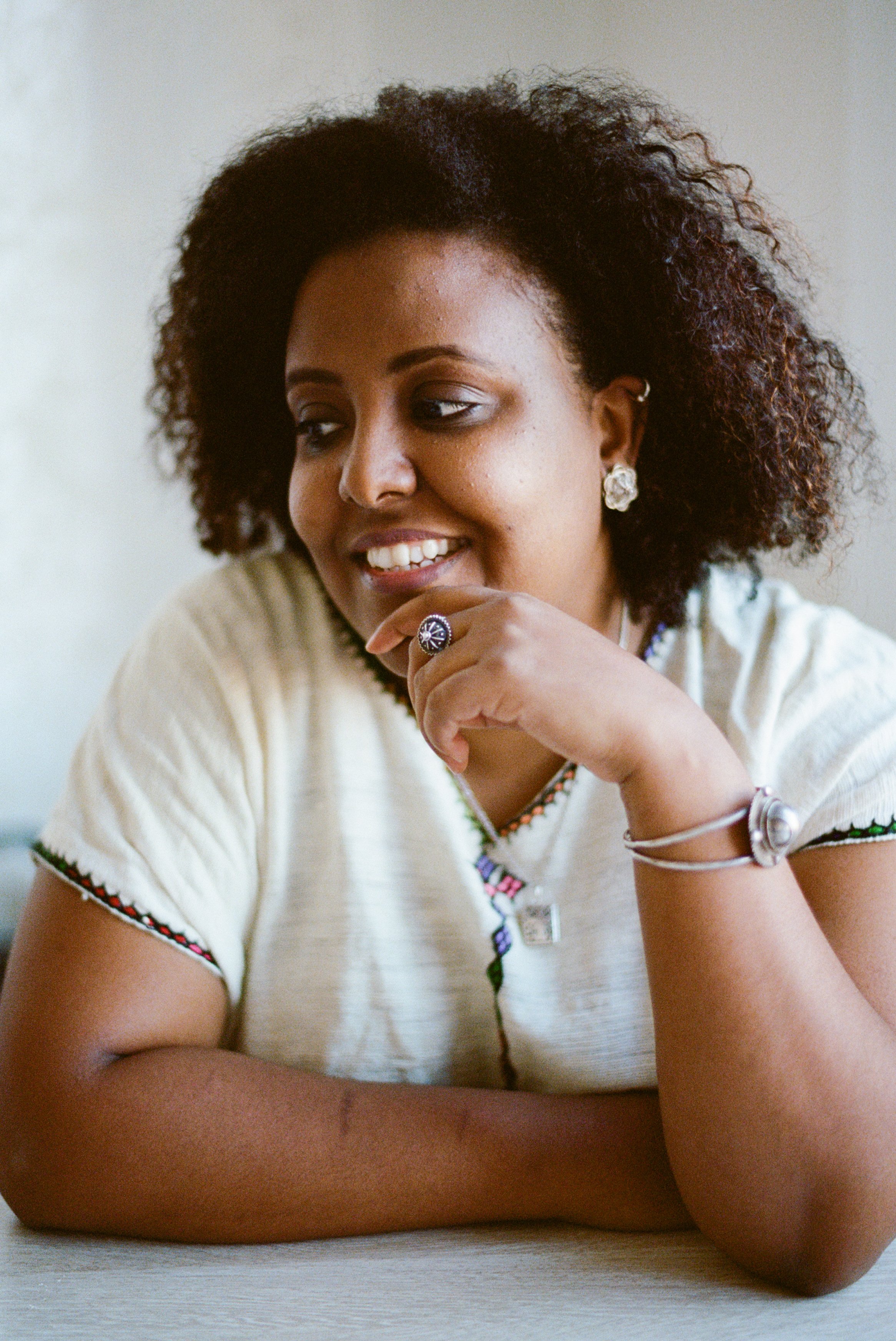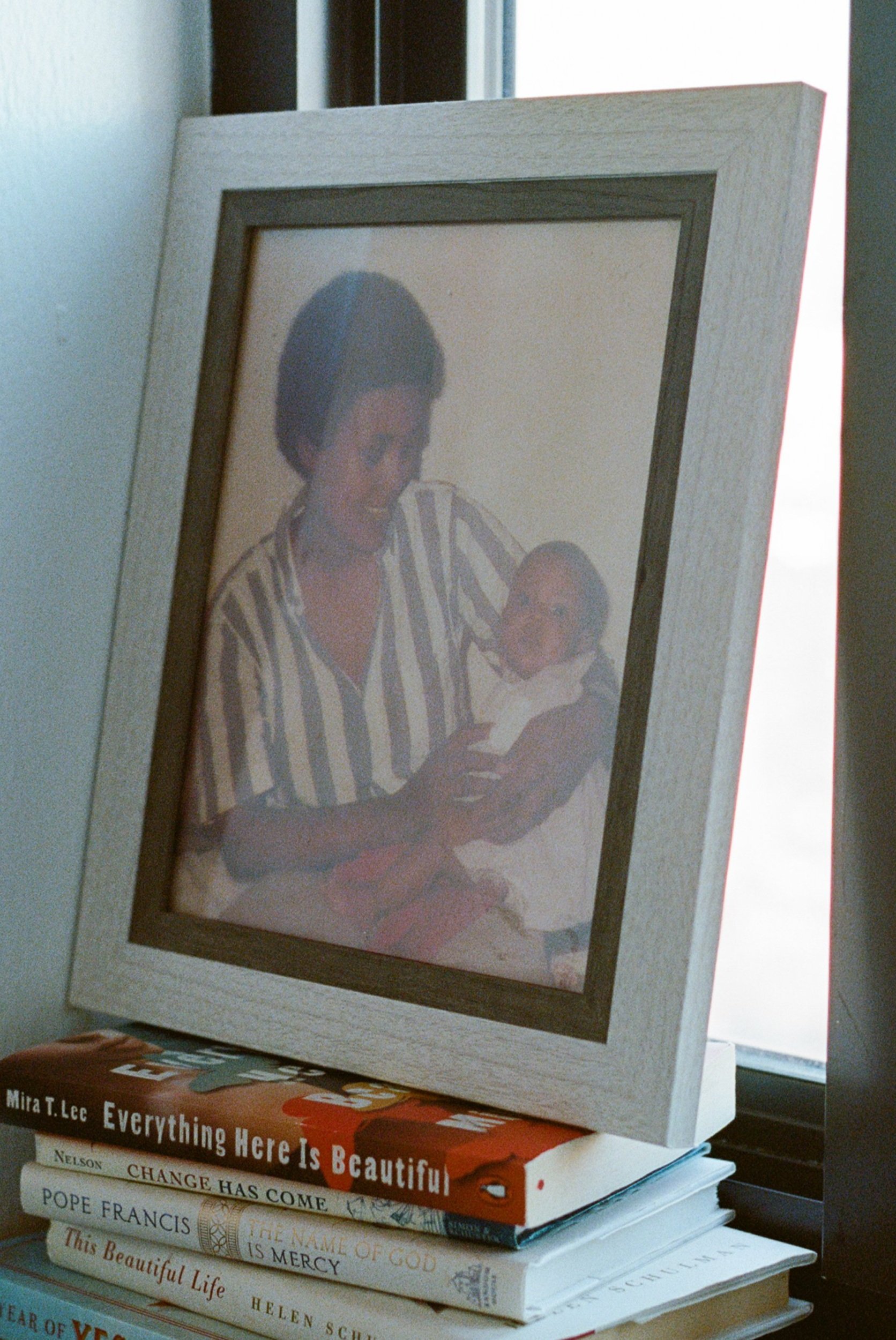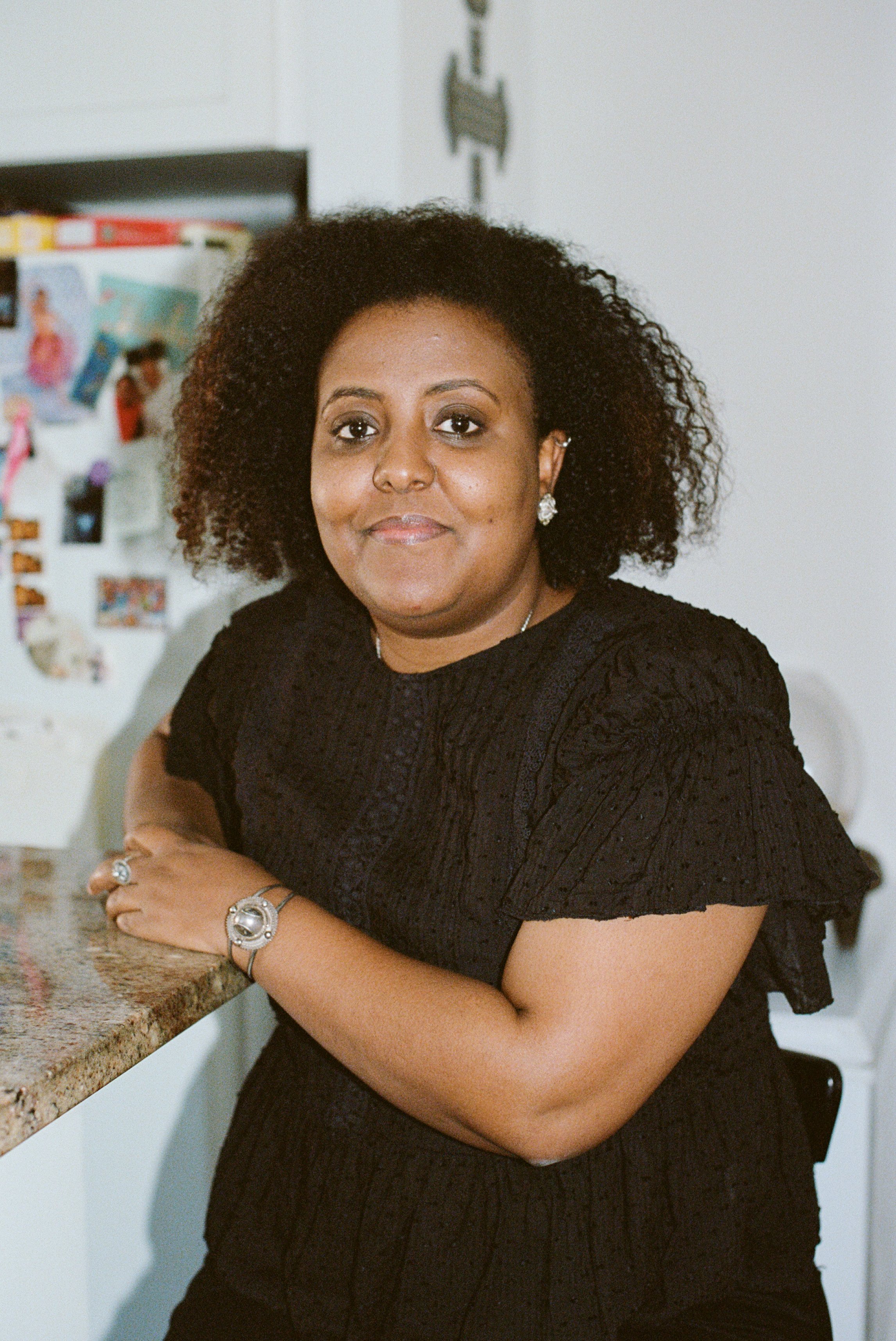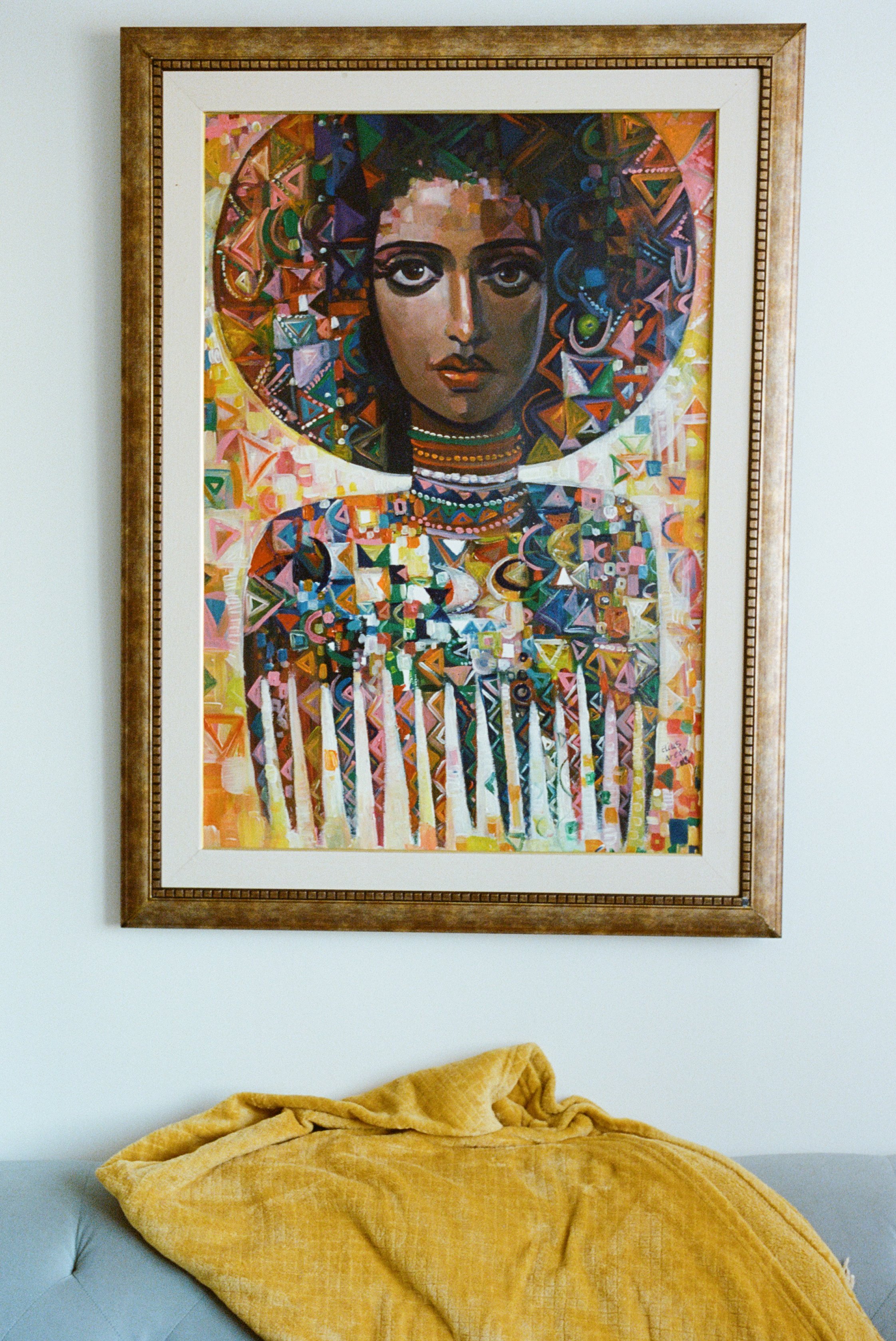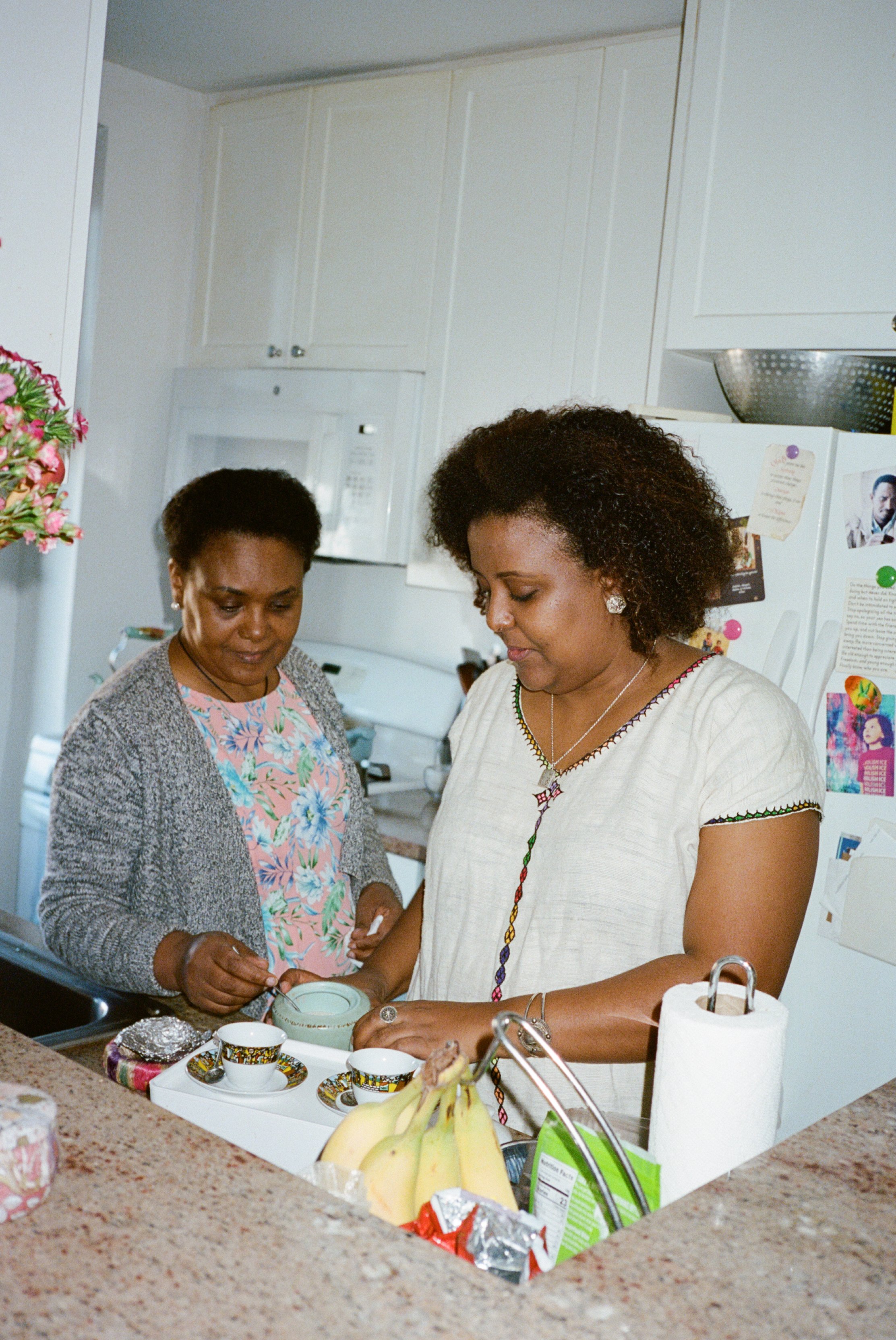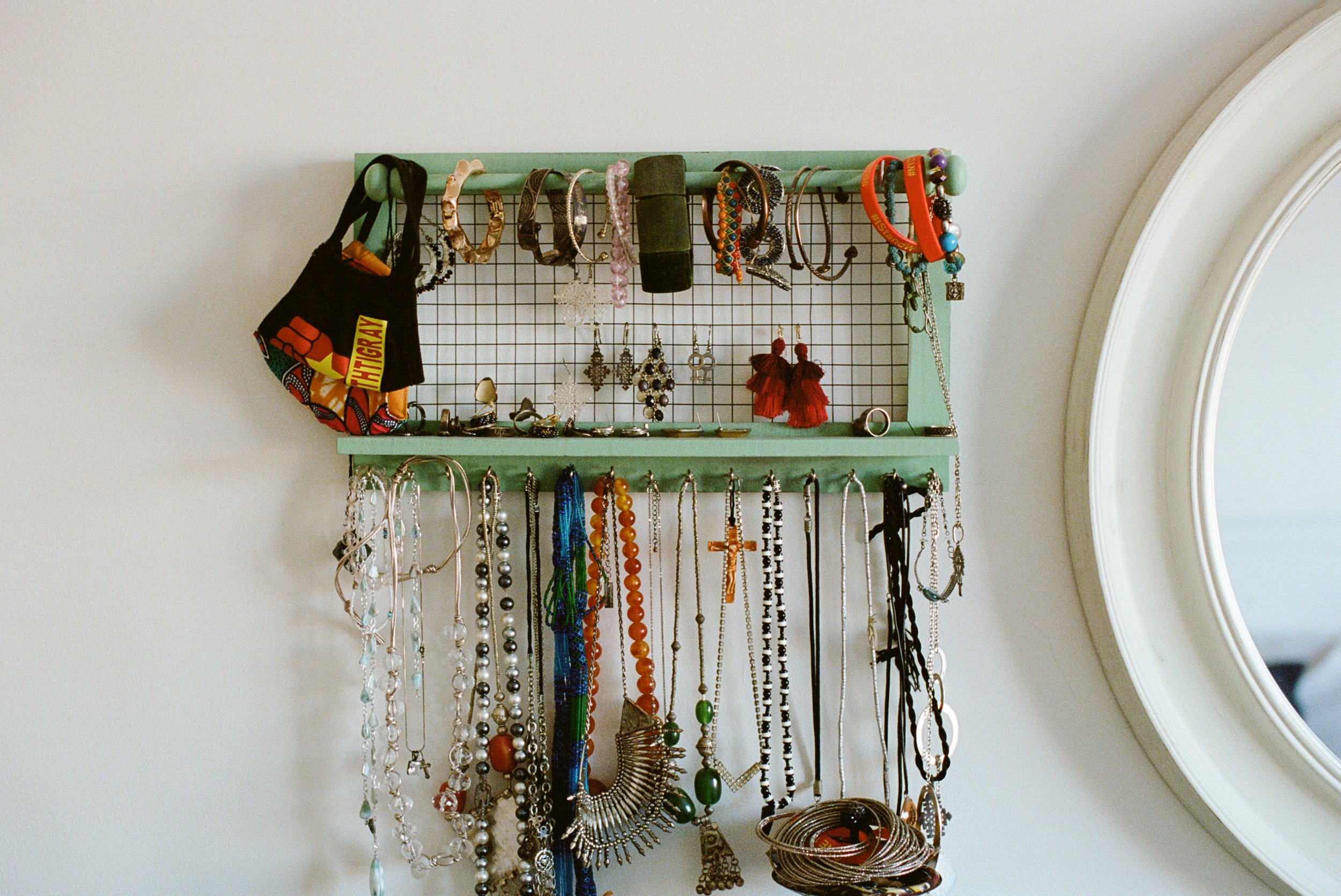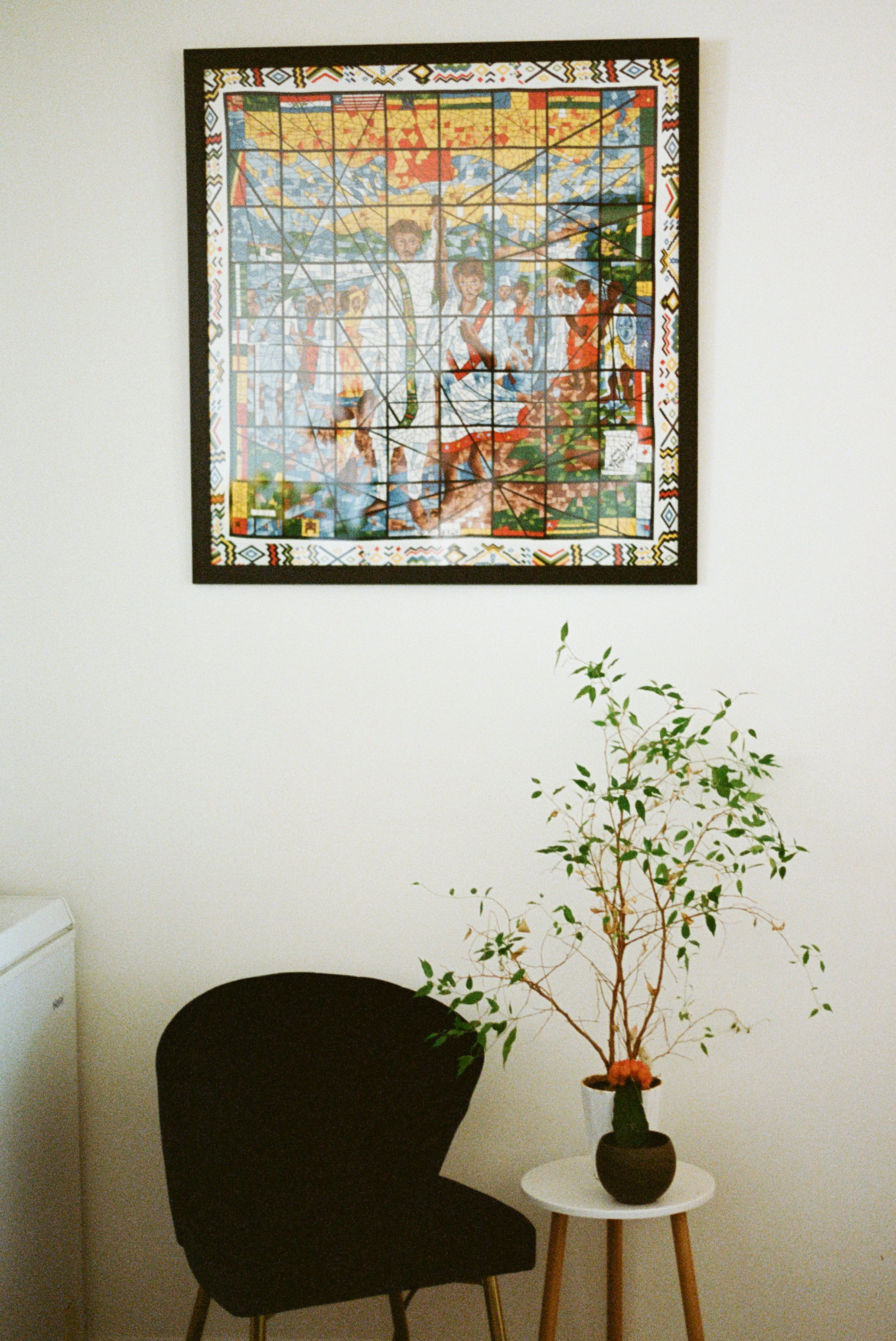This interview contains content that may be distressing, including mentions of childhood trauma as well as physical and sexual violence. Please be mindful of this before reading on, and reach out to us if you have any questions.
Niat is a lawyer who moved to the US in the early 2010s after spending much of her childhood in Ethiopia’s conflict-torn Tigray region. Marked by the social and political injustice around her from an early age, Niat embarked on a legal career that focuses on immigration, human rights, and gender-related issues — fields that have taught her much about our shared human experience. When she isn’t spending time at home in Harlem with her mother who left Ethiopia after the start of the ongoing war in Tigray, Niat can be found on walks around Central Park or hunting down the city’s best pastries. Below, we speak about the traumatic experiences that sparked her professional ambitions, activism, and what lasting effect the ongoing conflict in her home country has had on her life and sense of self.
♫ Listen to niat’s playlist | ⌨ niat’s last google search
on her morning routine
After a battle with my alarm clock to wake up, I am mostly rushing to get my laptop and turn on the tea kettle. I am much more of a night owl than a morning person, so always feel rushed early on weekdays. On weekends, I try to sleep in and wake up to read a book or listen to music.
on her upbringing and repressing painful childhood experiences
I was born in the middle of war to freedom-fighter parents. My mother had left her home when she was about 17 to join the armed struggle against the then-dictator Derg in Ethiopia and had me during the war. After her service, she took me home to Mekelle, the capital of Tigray. It was a miracle she was alive, and to come back with a child was just a pleasant surprise to her family. When I was about 5 or 6, we moved to Addis Ababa, the capital of Ethiopia.
My mama went on to be a lawyer, then a court-martial judge, military personnel, and a gender advisor with the UN DPKO in NYC — all while being passionate about music and art on the side. My father was a journalist. You can imagine what kind of conversations we had at home. My family instilled a lot of important basic values like integrity, human respect, and empathy in me. These days, I also remember that my early childhood happened in the middle of air strikes and shellings. I had repressed that experience from my memories and focused on the bubble of Addis. Having said that, my upbringing was still beautiful. I had an amazing family and social life with a lot of cousins, aunts, and uncles. It was a very loving environment. My mama did her best to give me what she didn’t have — uninterrupted education and good memories.
on moving to the united states
I graduated from Addis Ababa University School of law in 2009 and came to the US to do my LL.M. at St. Thomas University in Miami in 2010. I was looking for internships after graduating, and since my mom was also working in NYC at the time, there was no better place to look for a placement related to human rights work. The city felt like home from the beginning and I liked how easily accessible it was compared to Miami. I grew up in Addis, a big diverse city that’s densely populated — a melting pot for everything Ethiopian. NYC was similar to what I was used to in that sense, minus some infrastructure differences and more opportunities.
““I always learn something new with every case. Not just about legal issues, but about life and human nature. The strength of the women I meet always stands out. I am also fascinated by the similarities we share regardless of where we are from or how we got to here. We’re mostly hoping to find peace and a sense of belonging. Through my work, I witnessed how human resiliency can overcome many challenges and how much the feeling of belonging can help a person heal.””
on what she’s reading and listening to
Growing up, I was surrounded by books and read a lot in my teenage years, too, — but I get distracted easily these days. From the ones I managed to finish recently, I liked Educated by Tara Westover, Paris, When it’s Naked by Etel Adnan, Primed For Death — Tigray Genocide: A Survivor’s Story by Goitom Mekonen Gebrewahid, and We Need New Names by NoViolet Bulawayo. I also listen to podcasts whenever I can. This American Life, TED Radio Hour, Dr. Thema’s Homecoming podcast, Oprah’s Super Soul, and Modern Love are my usual go-tos.
on the traumatic experiences that sparked her legal career
I always wanted to be a lawyer or a journalist growing up. At some point as a child, I wanted to be a chemist, but that did not go far. I have always been drawn to social justice — but the main reason that made me pursue law as a career path was the situation of Ethiopian migrant and domestic workers in the Middle East. When I was in high school, a lot of young Ethiopian girls used to leave for Middle Eastern countries like Lebanon, Saudi Arabia, or Kuwait to work as domestic aids and support their families back home. These were young girls my age. Ethiopia is a poor country, so many wanted to flee for a better life, which was understandable. What bothered me was that most of these young girls never made it back home. The few times I went to the airport to either welcome a family member or see them off, I remember seeing coffins. Mothers yelling, receiving bodies of their children. Many of the girls that left were either trafficked sexually or held in domestic servitude; some committed suicide and some were killed by their employers. It was just too painful. That was the spark that led me to a legal career and work on migration and trafficking cases.
““My mama moved back to Ethiopia in 2018 to teach and do some consultancy work. When I heard that war had started, my mind was racing on what would happen to her. By the grace of God, she was able to leave the country and come live with me. She is my best friend and role model.It’s a second chance to have her close with me and appreciate all her dimensions. I am just grateful I get to have her wisdom as a resource during these trying times.””
on her start in the field and making immigration her specialty
My first job out of college in Addis Ababa was at a research institute. Once I came to New York, I interned and volunteered at three human rights organizations as a research and outreach intern. It is difficult to get a job in this field as an immigrant and I am part of the lucky few that didn’t struggle much. I later worked at African Services Committee in their legal department, which was something that really helped me develop solid experience with immigration law. I first worked as a paralegal, gaining experience with different types of immigration relief. The Department of Justice has this program that allows certain accredited non-profit legal service providers to practice immigration law under supervision from lawyers admitted in the United States. I have been practicing immigration law as a DOJ accredited representative since my time at African Services Committee and at my current job at Sanctuary for Families, which I was attracted to because of their focus area.
on a passerby that made a lasting impression
The wit of this young girl I met in January 2021 will stay with me forever. I first learned of her a few months after the start of Tigray war. She was posting on her Instagram page about collecting donations to send to Sudan to help the refugees. I later reached out to her and she became an integral part of the Tigray activism community. She was only 23 years old at the time, but she was a confident young leader. She was our COO. She talked less, but did more and always walked with grace. She was working on her master’s thesis with a full time job at a firm and was still doing Tigray advocacy work full time, too. I have never met anyone as dedicated and disciplined as her, who was always present for EVERY meeting and event. She was a product of people who give with their whole entire soul. We lost her on April 24, 2022. Her name was Zuher Ibrahim.
““I wouldn’t call myself an activist — it’s more an act of survival. I believe every Tigrayan has been affected by this war. One good thing I learned about my community is that we organize quickly. It has been all about Tigray from November 4, 2020. I didn’t even know how many Tigrayans were in NYC. We now are a small but mighty force in the Tri-State area. Survival brought us together, but resilience, respect, and hope are carrying us through.””
on the Tigray way and how it affected her & her family
Armed conflict erupted in Ethiopia on November 4, 2020, between the Tigrayan regional government and the federal government with its allied forces. This war has killed more than 600,000 Tigrayans and displaced millions. Conflict-related sexual violence has been perpetrated on a staggering scale. According to a United Nations HRC commission of experts, while different communities have been affected, Tigrayan women and girls have been targeted with particular violence and brutality. Tigray is currently one of the worst humanitarian crises in the world — and still, it’s one that the global population has largely ignored. How is it that a war that has consumed our lives and the lives of more than 6 million people is not getting enough coverage? It might be because black lives don’t matter globally or that geopolitical priorities stomped over the responsibility to protect and the world’s promise to #NeverAgain, which is now just a hashtag. There were some media that covered the conflict around sexual violence, but it wasn’t enough to get follow-up. Even though there is a cessation of hostilities at this moment and “peace talks” have started, Tigray continues to suffer with no adequate humanitarian assistance. There is, sadly, still a long way to accountability and justice.
This is the third war affecting my family and me. I have family that were massacred by the Eritrean and Ethiopian armies and family that died because of hunger or the lack of medication. Imagine people dying out of hunger and lack of medicine in this day and age — not lacking resources, but for selfish political gain. This has been something that has completely changed my life and being. It was gut-wrenching to not feel seen or heard, and yet every minute that passes risks the loss of a family member. It also has affected my sense of home and country. I feel stateless.
““My biggest takeaway from recent joint events with Iran, Ukraine, or Myanmar is that while we all advocate for our respective communities, solidarity and partnership with others are key for effective advocacy. Sometimes we bark at the same tree, and the solution might come with standing tall in solidarity to show the world that we all say no to war. It isn’t the government that we need to appease, but the people that have the power to ask their governments what they are doing.””
on her overall health routine and favorite activities
I use Supergoop Unseen Sunscreen and their moisturizer. I like how light it feels. You will also find me using Trader Joe’s products, especially their tea tree oil face wash. I recently started using raw shea cream from Ghana. A friend swears by it whenever I complain about my skin, so I am trying that now. I aim to eat healthily and love my greens. I also love walking. It helps calm my mind.
I have beautiful friends who have turned into family. Brunches and Happy Hours are easy social activities that I do with them, as well as hiking and traveling. I enjoy Broadway shows and international cinema, too, although I don’t get to do that as often as I would like to. I love kids, and I have a bunch of them around me — my ever-joyous goddaughter is one that I hang out with as much as I can. With my Tigrayan friends, my new family in NYC, we try to meet for something fun as often as possible. We love to embrace the warmth of our traditions, which means dancing and feasting, as well as spreading joy and comfort while doing the best we can for our families in Tigray. There will always be one person that reminds us how ‘Joy is an act of resistance’.
on resources to support Tigray and sudan
There are organizations that were established in the past two years and have been instrumental in the advocacy work for Tigray that have a lot information and fact sheets on what is happening as well as donation links to different projects in Tigray and Sudan: Omna Tigray, Health Professionals for Tigray, International Society for Better Health Access, Tigray Action Committee.
niat’s favorite spots in nyc
Restaurants: Babbalucci and Ponty Bistro in Harlem, La Parisienne on Maiden Lane in FiDi, Tomi Jazz in Midtown
Café: Il Café Latte
Museum: The Met Cloisters — something about them reminds of Tigray
images and interview by clémence polès

